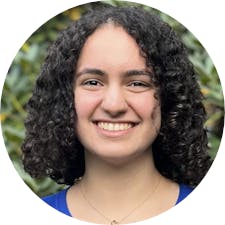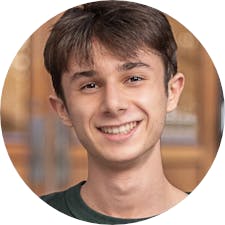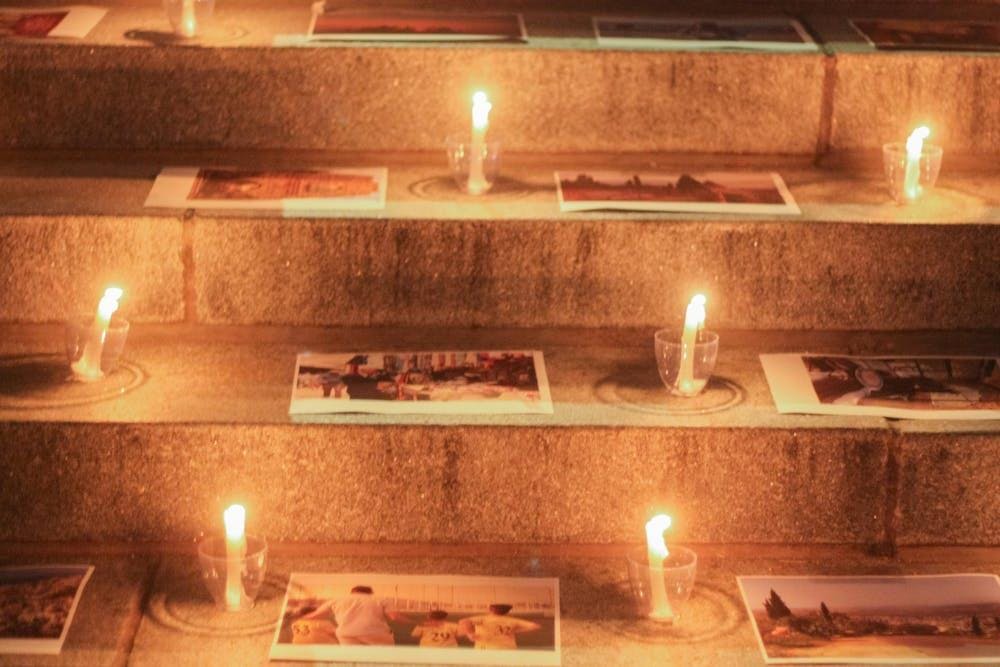On Oct. 7, 2023, Hamas militants invaded southern Israel in a surprise attack, killing around 1,200 people and taking around 250 hostages back to Gaza. The Israeli military responded by launching airstrikes and a ground invasion in Gaza, setting into motion an ongoing offensive that has killed more than 41,000 Palestinians.
The Oct. 7 attacks and the ensuing war have directly impacted many students and their loved ones, and have profoundly altered their experiences on campus this past year.
Yonah Rosenfield ’25 was observing the Jewish holidays with his friends when the news of the Oct. 7 attack first broke. Since he was not using his phone in observance of the holiday, Rosenfield learned about the attacks from the newspaper and descriptions from his friends.
“Once it became clear that this was the worst day in Jewish history of my life, it obviously hit me very hard,” he said.
Aboud Ashhab ’25 — a Palestinian student from the West Bank — said he was initially shocked, but not surprised, given the violent history of the conflict.
Ashhab told The Herald that he “felt very scared at first” as he immediately began to worry about the harassment that Arab students might face as a result.
Adi Beniluz ’28, an American-Israeli student who was living in Israel last year, remembered being at holiday services with her cousins when news of the attack started to spread. Despite the restrictions on technology use during the holiday, she and her cousins went home, turned on the TV and spent the day watching the death toll rise.
“We were all trying to understand the magnitude of how horrible this day is,” Beniluz recalled.
As the days passed and Israel’s offensive in Gaza grew more severe, one Lebanese-Jordanian third-year student recalled experiencing a moment of “isolation and reflection” as she felt that not all lives were “being equally accounted for” in the media’s coverage of the rising death toll in Gaza.
That student, whose family fled Palestine in 1948 and now lives in Jordan, was granted anonymity. The student said that in the wake of Oct. 7 she was often scared to tell people she was Palestinian or express her views of the conflict on social media, citing a fear that the charge of antisemitism would be “weaponized” against her.
“It was very hard to display a Palestinian identity post-October 7,” she said.
Ashhab also said that the Oct. 7 attacks made being Palestinian “a controversial or hot topic,” and given the frequent conflation of Palestinian and Arab identities, many Arab students “felt like they couldn’t express their identity anymore.”
With the often polarized rhetoric surrounding the Israel-Hamas war, Rosenfield felt pulled in multiple directions — “socially, politically and emotionally” — following Oct. 7, especially given the divergent views of his friends and family.
“On that personal level, it was really difficult for me to navigate, feeling like I was being told two different things from two different groups of people I love and trust,” Rosenfield said.
As the year went on, Rosenfield found himself discussing the conflict with his friends on campus. Though challenging, he said he was grateful to engage in these difficult conversations and learn from the perspectives of his peers.
“People are people, regardless if we disagree,” Rosenfield said.
In recent weeks, Israel has expanded its war into Lebanon, launching a heavy bombardment and a ground invasion after months of trading strikes with Hezbollah, an Iranian-backed militant group operating in southern Lebanon. More than 2,300 people have been killed in the Israeli invasion.
As the war has expanded in the region, Ashhab has found it difficult to find a sense of normalcy. “What is normality for Palestinian students?” he asked.
Ashhab feels that he has still not fully processed the conflict and the “ongoing wound that’s been open.” He remains in frequent contact with his family members who are in the West Bank.
“Half of my mind is home, and half is on campus,” he said. For “hours of my day, my eyes are peeled on to the news screen, seeing updates after updates and talking with my family.”
Lexie Cohen ’28, a Jewish student who has family in Israel, said that the campus atmosphere around the one-year anniversary of Oct. 7 has been “extremely difficult.” Though there is a larger Jewish community at Brown than back home in Singapore, she said it was hard to hear rhetoric from peers on campus who, in her view, were “celebrating” the Hamas attacks.
As a result, Cohen said that she is “spending more time at Hillel and surrounding myself with people that have similar experiences” and are feeling similar emotions.
Beniluz echoed these sentiments, noting that at Hillel she found Jewish students who “understand the pain” and “the injustice of some of the things that are said on campus on a personal level.”
When six hostages being held in Gaza were found executed in September, it was “very painful to have to go about a normal day” feeling that nobody around her on campus “really understands the magnitude of what is happening,” Beniluz recalled.
“I feel completely helpless,” Cohen said of watching the continued escalations between Israel and Hamas, Hezbollah and Iran. She said she continues to check in with her family members and monitor social media to make sure her friends are alright.
As Israel’s war in Gaza stretches into its second year, the Lebanese-Jordanian student said that she has “gravitated” towards the Arab community on campus.
“No one’s going to understand how it feels to be Palestinian or Arab like a Palestinian or an Arab,” she said. “It’s a very complex and strange feeling, especially being in the U.S. during this time.”
But the student also said that people are now more educated on the suffering in Gaza, which has made her more comfortable sharing her Palestinian identity and communicating her views compared to last year.
For Beniluz, being in Providence has made her feel “so removed” from the situation in Israel. While living there, she was able to raise money with her gap year cohort and volunteer to help families who lived in the towns attacked by Hamas on Oct. 7.
At Brown, Beniluz is organizing seminars where she can discuss the “complexities of Israel” and the “roots and relevance” of Zionism, concepts she studied in her gap program in Israel.
“I think that’s the most important thing we can be doing on campus: having real conversations where we listen to each other and to each other’s pain, and talk to each other face-to-face,” she said.

Sophia Wotman is a University news editor covering activism and affinity & identity. She is a junior from Long Island, New York concentrating in Political Science with a focus on women’s rights. She is a jazz trumpet player, and often performs on campus and around Providence.

Sam Levine is a University News editor from Brooklyn, New York covering on-campus activism. He is a senior concentrating in International and Public Affairs.





